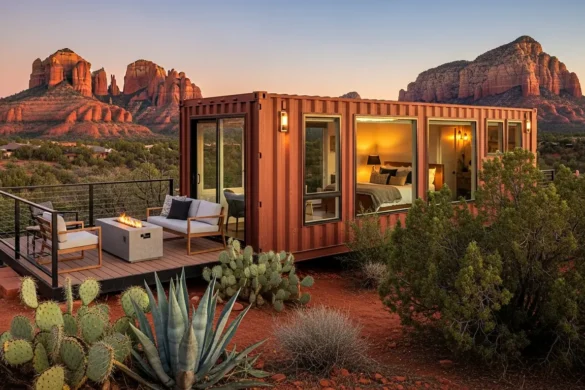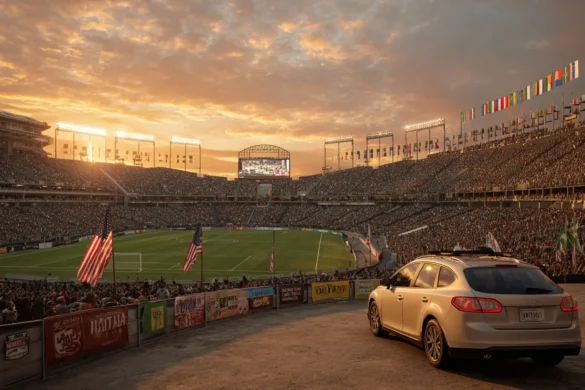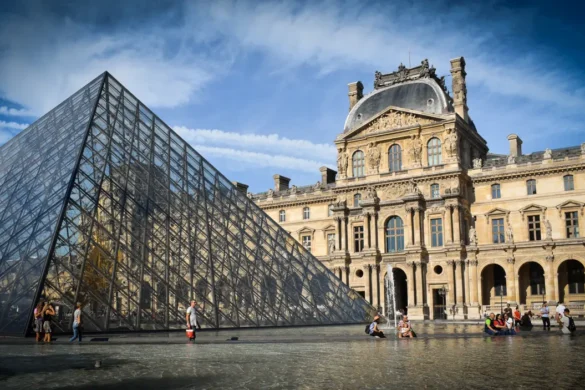Real talk: North Dakota completely caught me off guard. Everyone told me it was “just empty plains,” but wow, were they wrong! I’ll never forget the moment I first saw Theodore Roosevelt National Park, where countless bison roam freely through towering buttes and canyons. It hit differently than any landscape I’d seen before in America.
These are the most beautiful places in North Dakota, and trust me, they’re way cooler than Instagram makes them look. From the mind-blowing rock formations at Painted Canyon to the quirky giant sculptures along the Enchanted Highway piercing that endless prairie sky, this state is full of surprises. Here are 12 spots that made my jaw drop…and they’ll do the same to yours.
Best Spots to Visit in North Dakota
Visiting North Dakota? Spend the day exploring the rugged beauty of Theodore Roosevelt National Park, marvel at the unique sculptures along the Enchanted Highway, or find tranquility at the International Peace Garden. Stroll through charming towns for shopping and dining, embark on an adventure along the Maah Daah Hey Trail, or enjoy the wide-open landscapes of the Great Plains. Whether you’re into history, outdoor adventures, or scenic beauty, North Dakota has plenty to offer!

1. Theodore Roosevelt National Park
Honestly, Theodore Roosevelt National Park is way cooler than most people expect. You’re looking at $30 per vehicle for a 7-day pass, and trust me, it’s worth every penny. The park runs year-round, but May through September is when you’ll catch the best wildlife action and all visitor services.
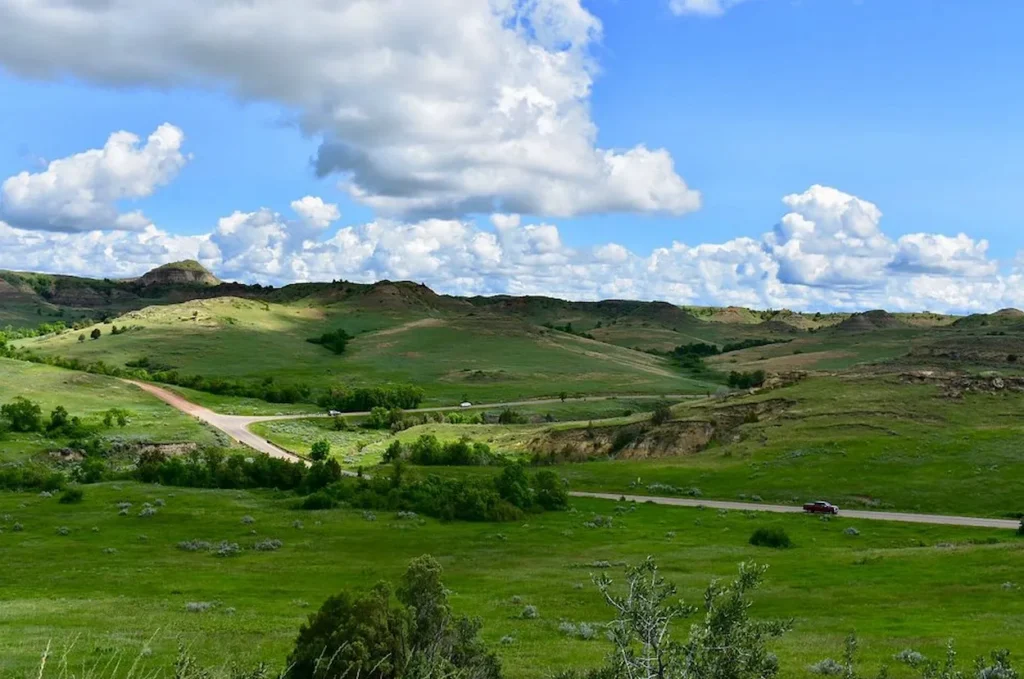
I spent three days here last summer and still didn’t see everything. The South Unit near Medora has the famous 36-mile scenic loop that’ll blow your mind, while the North Unit (about 15 minutes south of Watford City) is more remote and honestly more dramatic. Both units have different time zones, which is pretty weird.
The bison herds are no joke – I’ve had cars full of tourists stopped for 20 minutes while these massive animals just casually cross the road. Wind Canyon Trail at sunset is absolutely stunning, and if you’re into stargazing, this place has some of the darkest skies you’ll find anywhere. Don’t skip the Painted Canyon overlook either. It’s right off I-94 and gives you that jaw-dropping first glimpse of the badlands that’ll make you want to come back.

2. The Enchanted Highway
The Enchanted Highway is one of those roadside attractions that actually delivers on the hype. This 32-mile stretch from Gladstone to Regent features seven massive scrap metal sculptures that are genuinely impressive, not just Instagram bait.
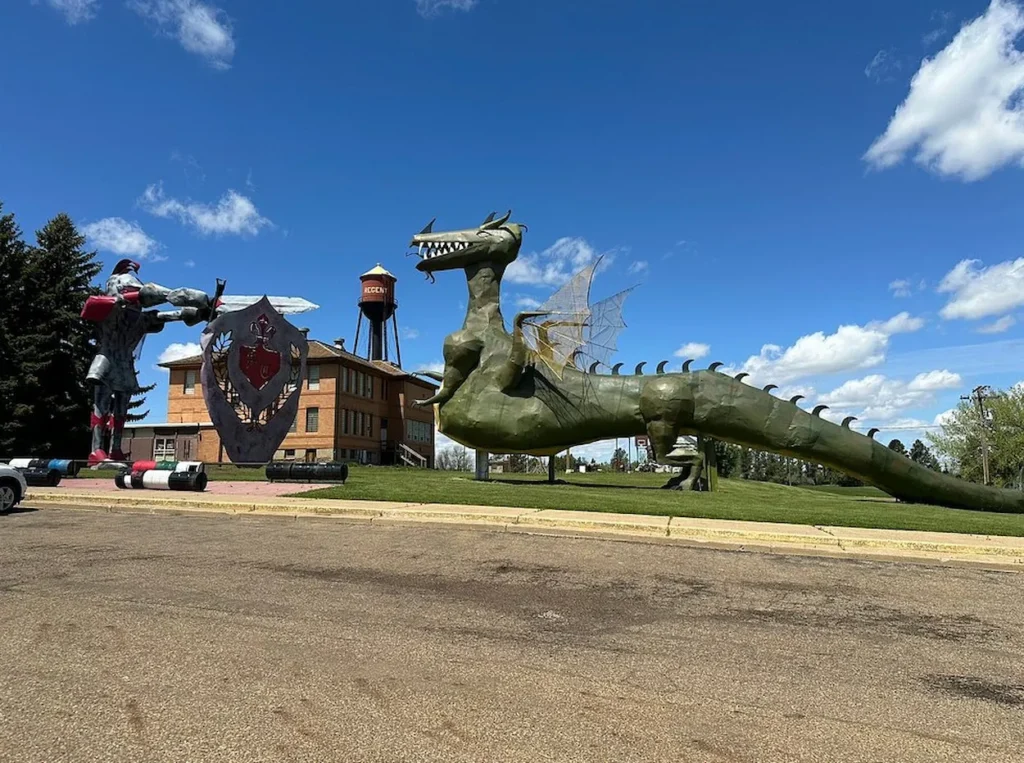
Artist Gary Greff has been building these giants since 1989, and they’re all made from recycled metal. Geese in Flight near I-94 Exit 72 holds the Guinness World Record as the world’s largest scrap metal sculpture – it’s 110 feet tall and weighs nearly 79 tons. Each sculpture has its own pullout with parking and usually a picnic shelter.
I’d budget about 3-4 hours for the round trip if you want to stop at each one. Grasshoppers in the Field has a playground for kids, and Deer Crossing actually has a maze. The whole thing culminates in Regent, where Greff runs the Enchanted Castle hotel and restaurant. It’s themed like a medieval castle, complete with a giant knight and dragon sculpture out front.
The contrast between these playful creations and the endless prairie is pretty surreal. It’s definitely worth the detour if you’re driving I-94, and it makes for some truly unique photos that’ll have people asking where the hell you found giant metal pheasants.

3. International Peace Garden
The International Peace Garden is actually a pretty cool concept – you can literally walk between the US and Canada without going through customs. Daily admission is $10 per person ($50 for an annual family pass), and the garden is open 8am to 8pm daily.
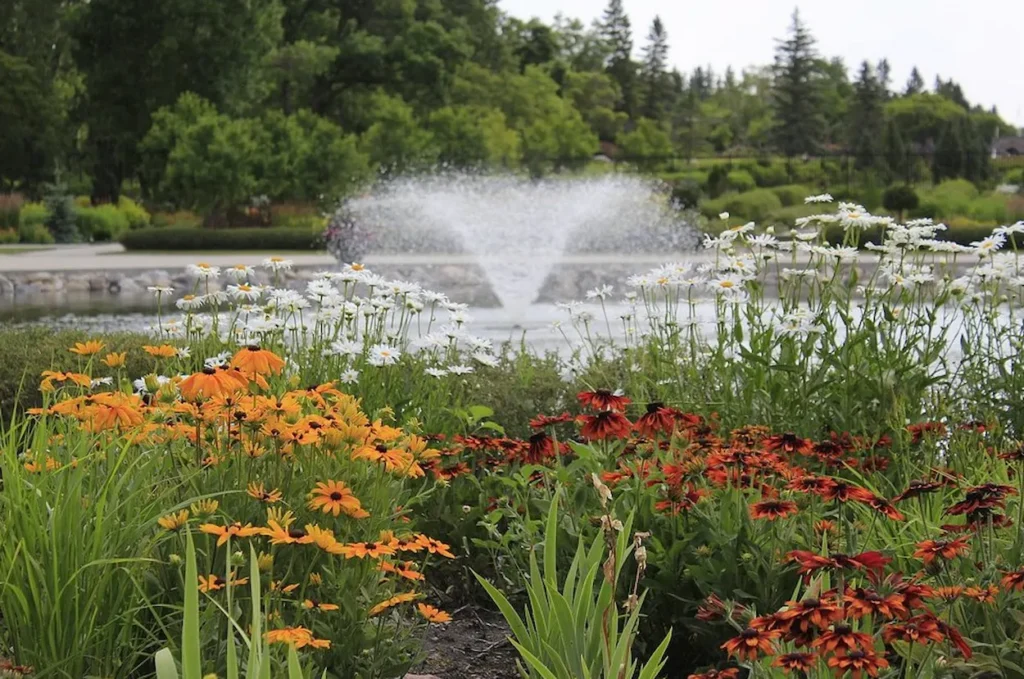
What makes this place special isn’t just the 100,000+ flowers they plant annually, but the whole cross-border thing. The Conservatory houses over 5,000 species of cacti and succulents from around the world, which honestly wasn’t what I expected to find on the North Dakota-Canada border. The floral clock is made with 2,500-3,000 flowers and runs on GPS, which is oddly high-tech for a flower garden.
The Peace Chapel has stone walls carved with inspirational quotes, and the 9/11 Memorial incorporates actual steel girders from the World Trade Center. The Carillon Bell Tower chimes every 15 minutes, which can be pretty peaceful or slightly annoying depending on your mood.
You’ll need your passport to leave the garden (you have to go through border control), but moving around inside is totally unrestricted. I spent about 4 hours there and felt like I got the full experience. The International Music Camp happens in summer if you’re into that sort of thing.

4. Maah Daah Hey Trail
The Maah Daah Hey Trail is North Dakota’s answer to serious outdoor adventure. This 144-mile non-motorized trail connects both units of Theodore Roosevelt National Park through some of the most remote badlands terrain you’ll find anywhere.
✈️ My #1 Hack for Cheap 2026 Flights:
It’s January, so flight prices are climbing fast—but you don't have to pay them. I’m currently seeing roundtrips to Europe for under $300 (deals you won’t find on Google Flights).
Step 1: Join Going.com's Free Plan here. It takes 10 seconds and requires no credit card.
Step 2: If you're doing a big trip this year, grab the 14-day free trial of Premium. You can even use my code JON25 for 25% off.
Seriously, this is the single best money-saving tool I’ve used in 8+ years.
👉 Send me cheap 2026 flights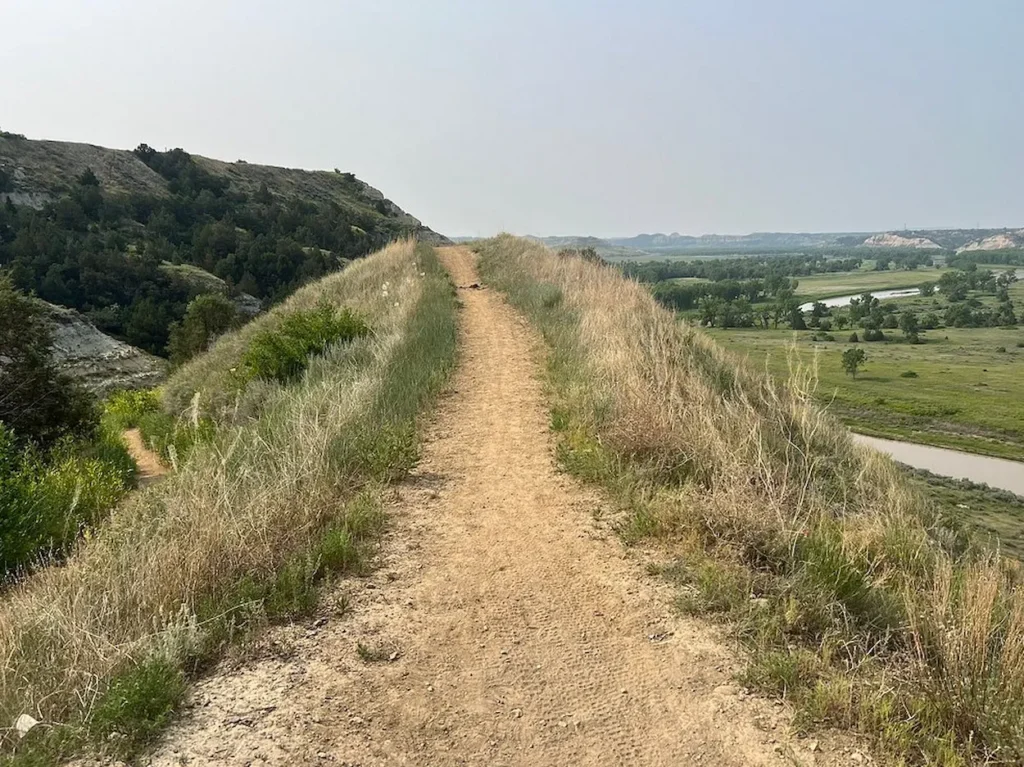
Don’t let the name fool you – “Maah Daah Hey” means “an area that will be around for a long time” in the Mandan language, and this trail will definitely test how long you want to be around. I attempted a 30-mile section last fall and my legs still remember it. The concrete posts with turtle symbols mark the way (turtle represents patience and determination, which you’ll need).
Most people tackle it in sections rather than the full 144 miles. Dakota Cyclery in Medora offers shuttle services, which is clutch if you don’t want to backtrack. The trail crosses some pretty wild terrain – steep climbs, river crossings, and overlooks that’ll make your Instagram followers jealous.
Wildlife viewing is incredible out here. I’ve spotted bison, bighorn sheep, and golden eagles in areas where you won’t see another human for hours. Late spring and early fall are the best times to avoid getting cooked by the prairie sun. This isn’t a casual afternoon hike – come prepared for a real backcountry experience.

5. Fort Abraham Lincoln State Park
Fort Abraham Lincoln State Park is where history nerds go to geek out, and honestly, it’s pretty fascinating even if you’re not typically into that stuff. The reconstructed Custer House is where Lt. Col. George Armstrong Custer lived before his infamous last stand at Little Bighorn.
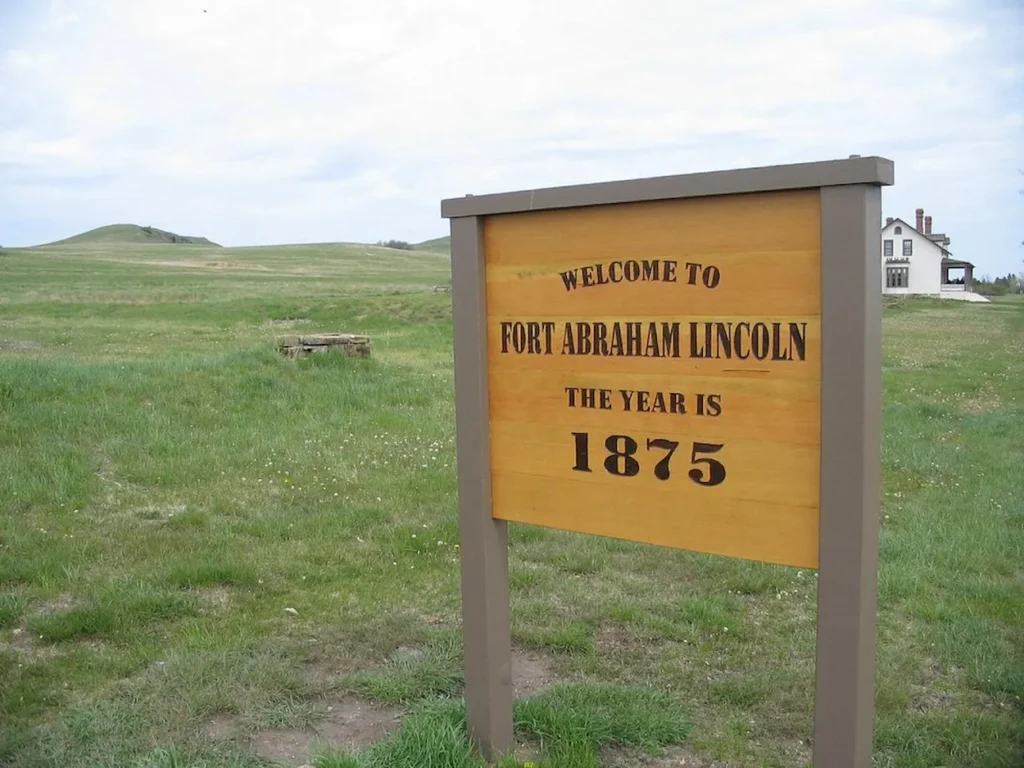
The park interpreters in period clothing really know their stuff – I ended up listening to stories about frontier military life for way longer than I planned. The On-A-Slant Indian Village preserves reconstructed earthlodges that show how the Mandan people lived from 1575-1781, which adds some important Native American perspective to the site.
Infantry Post Hill offers panoramic views of the Missouri River Valley that are worth the climb. The visitor center has artifacts that provide good context, and the guided tours run May through September when the weather’s decent.
It’s about 7 miles south of Mandan (right across the river from Bismarck), so it’s easy to combine with other area attractions. I’d plan on spending 2-3 hours here if you want to see everything and actually absorb some of the history. The combination of military and Native American history makes this more interesting than your typical historic site.

6. Historic Town of Medora
Medora is like adult summer camp with better food and evening entertainment. This tiny town (population under 150) transforms into a tourism powerhouse every summer, and the Medora Musical is the main event.
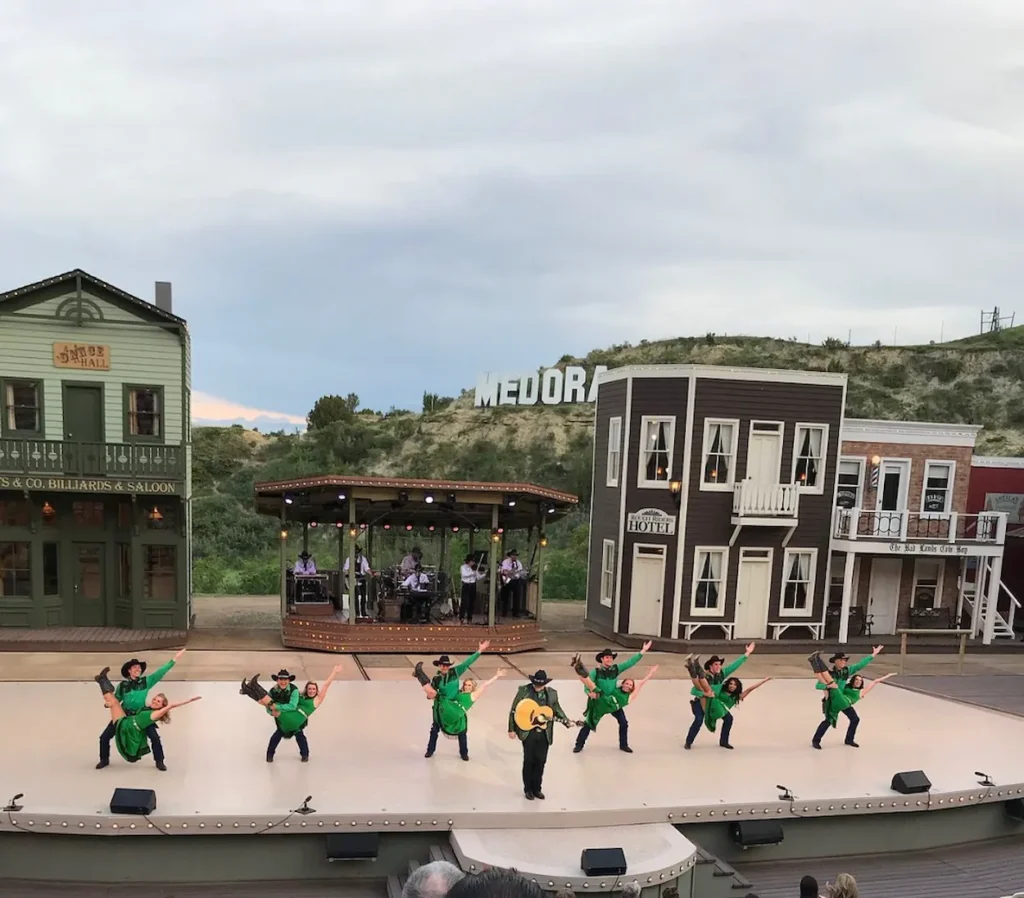
The musical runs nightly June 4 through September 13, 2025, in a spectacular natural amphitheater overlooking the badlands. It’s cheesy in the best possible way – part variety show, part Theodore Roosevelt tribute, part country concert. I’ve been twice and it’s genuinely entertaining, not just touristy fluff. The Pitchfork Steak Fondue dinner beforehand is a whole experience – they literally cook steaks on pitchforks over an open fire.
During the day, Chateau de Mores State Historic Site tells the story of the town’s founder, and the North Dakota Cowboy Hall of Fame celebrates ranching heritage. The main street has that authentic Old West vibe without feeling like a theme park.
Theodore Roosevelt National Park’s South Unit entrance is right here, so you can easily combine badlands exploration with evening entertainment. Book accommodations early – the Rough Riders Hotel fills up fast during peak season. This place really captures that Western spirit without being too over-the-top about it.
- Read next: Best Places to Live in North Dakota

7. Lake Sakakawea
Lake Sakakawea is absolutely massive – 178 miles long with more shoreline than the entire state of California. It’s North Dakota’s ultimate water playground and honestly surprised me with how much there is to do.
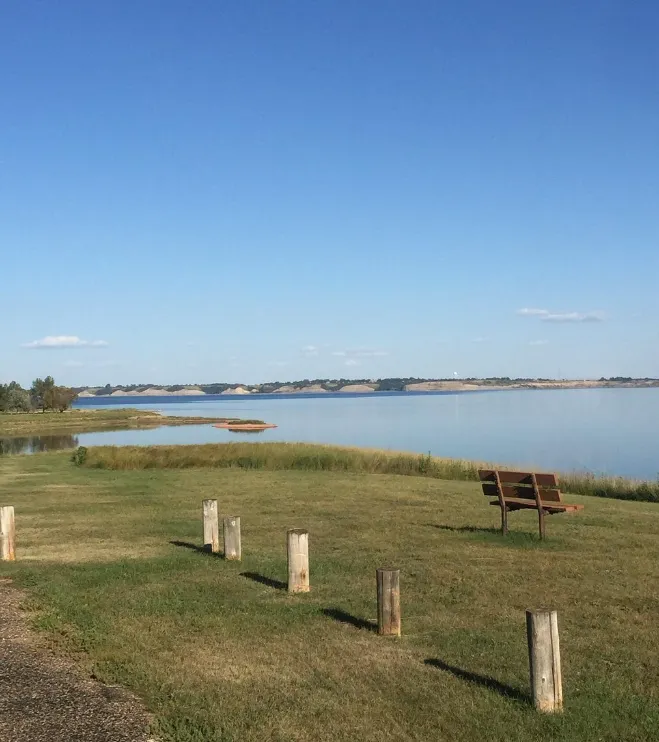
The walleye fishing here is legendary. This lake hosts the Governor’s Walleye Cup and other major tournaments because the fish are that good. I’m not even a serious angler but caught my limit pretty easily with a guide. You’ll also find northern pike, smallmouth bass, and chinook salmon if walleye isn’t your thing.
Lake Sakakawea State Park, Fort Stevenson State Park, and Lewis & Clark State Park all provide excellent access with modern marinas, boat launches, and camping facilities. The lake’s so big you can go houseboating for days and never see the same cove twice.
What I didn’t expect was how beautiful the sunsets are over all that water. It creates this weird optical illusion where you feel like you’re at an ocean instead of in the middle of North Dakota. The new accessible boat ramps at Hazen Bay and Beulah Bay make it easier for everyone to get on the water. May through September is prime time for warm weather activities.

8. Fargo
Fargo is North Dakota’s cultural surprise. This isn’t the sleepy prairie town you might expect – it’s actually a pretty vibrant place with an arts scene that rivals much larger cities.
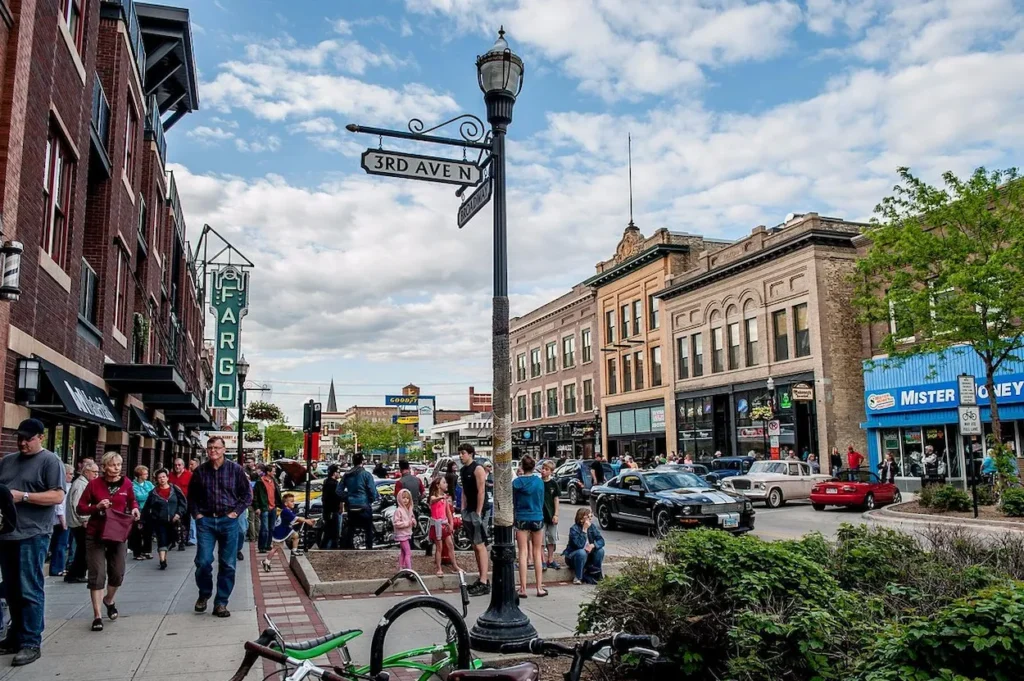
The Plains Art Museum in a converted warehouse is legitimately impressive, showcasing regional artists alongside traveling exhibitions. Broadway (the main drag) has independent boutiques and cafes that would fit right in in any hip neighborhood. I spent an entire afternoon browsing shops and ended up with way more stuff than I planned to buy.
The Fargo Theatre is a gorgeous art deco gem that still shows movies and hosts live performances. And yes, they have the wood chipper from the movie at the visitors center, which is exactly as weird as it sounds.
The food scene here is surprisingly good too. Local breweries and farm-to-table restaurants make the most of regional ingredients. Hotel Donaldson downtown features local art in every room and gives you a real sense of the city’s creative energy.
Time your visit for the Fargo Street Fair in July if you want to see the city at its most energetic. The whole downtown transforms into one big festival, and you’ll understand why people who live here are so protective of their little cultural oasis.

9. Knife River Indian Villages National Historic Site
Knife River Indian Villages offers something you can’t find anywhere else – the actual preserved remains of Hidatsa earthlodge villages, including where Sakakawea lived before joining the Lewis and Clark Expedition.
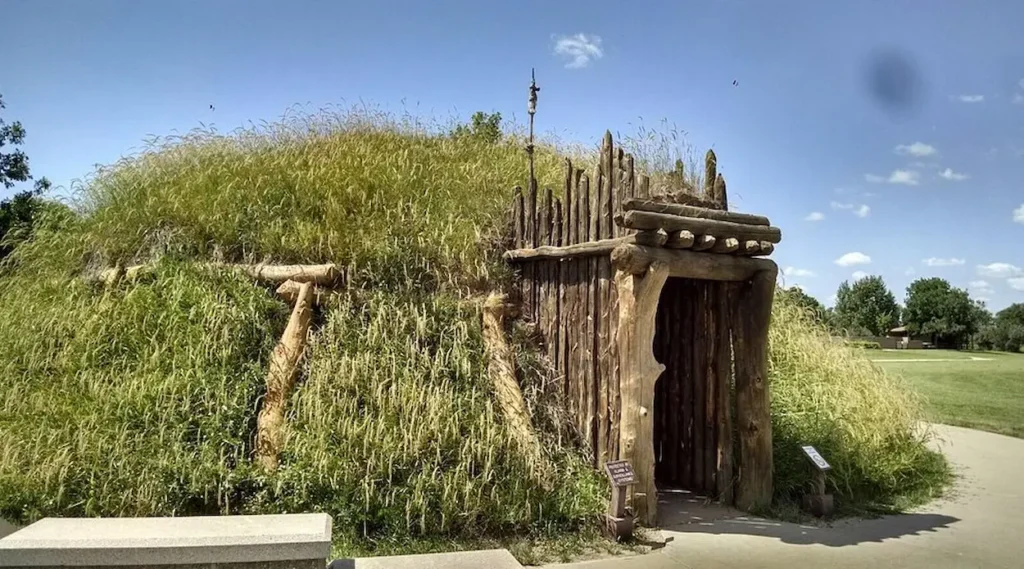
The circular depressions scattered across the prairie are what’s left of earthlodges that housed extended families. Walking among them gives you a real sense of how substantial these communities were. The visitor center has a full-sized reconstructed earthlodge that shows the impressive craftsmanship and engineering these structures required.
I was genuinely impressed by how well the exhibits bring this history to life without feeling preachy or overly academic. The Village Trail is less than a mile and takes you to the largest village site, then continues to the peaceful Knife River banks where you can imagine what daily life was like here.
The site is about 60 miles northwest of Bismarck near Stanton, and admission is free (one of the perks of national historic sites vs. national parks). Plan on spending at least half a day here if you want to really appreciate the significance of this place. It’s one of those stops that changes how you think about pre-European settlement in the Great Plains.
- Read next: Cool Attractions in North Dakota

10. North Dakota Heritage Center and State Museum
The North Dakota Heritage Center in Bismarck is way more impressive than your typical state museum. This place is free, which seems crazy when you see what they have here.
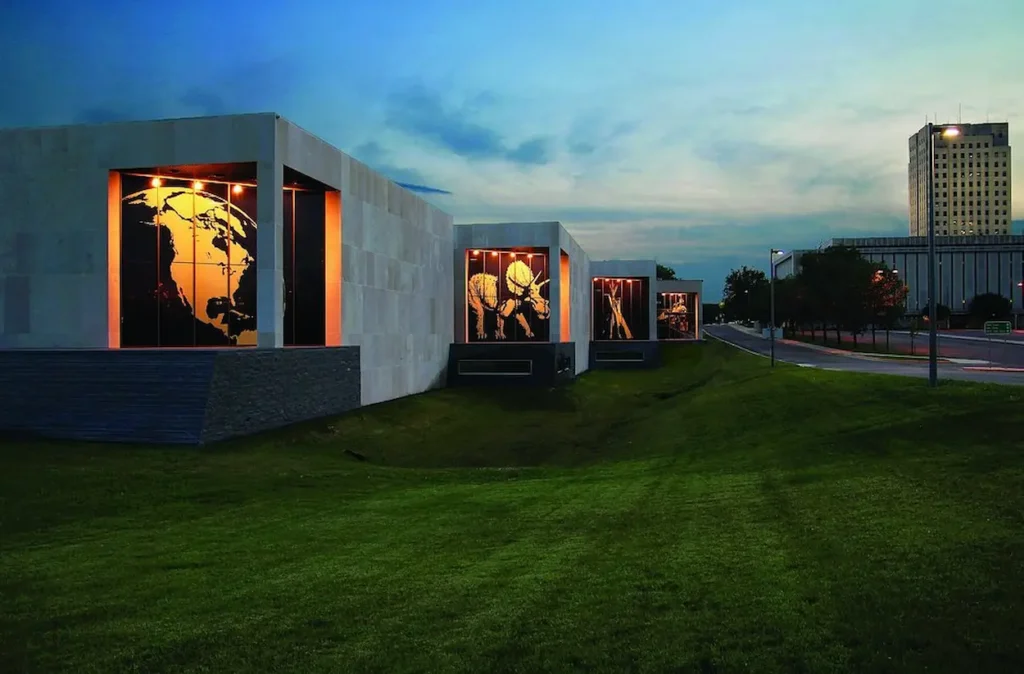
The star attraction is “Dakota,” one of the world’s rarest dinosaur fossils – a hadrosaur with mummified skin intact. A local teenager found it, which makes the story even cooler. The preservation is incredible; you can actually see the skin texture from 67 million years ago.
The Innovation Gallery shows how humans adapted to life on the Northern Plains, and the Native American Hall of Honors celebrates both historical and contemporary tribal accomplishments. The whole 600-million-year journey of North Dakota is pretty well done, moving from ancient seas to modern times without being boring.
The Northern Lights Atrium with its dramatic glass architecture makes for some good photos before you dive into the exhibits. I expected to spend an hour here and ended up staying for three. It’s a perfect introduction to North Dakota if you’re just starting your visit, or a good way to put everything in context if you’re wrapping up. The museum sits right on the Missouri River, so you can easily combine it with other Bismarck attractions.

11. Lake Metigoshe State Park
Lake Metigoshe State Park feels like it got dropped in from Minnesota or Wisconsin. This is not the North Dakota you expect – rolling forested hills, crystal-clear lakes, and hiking trails that wind through oak and aspen groves.
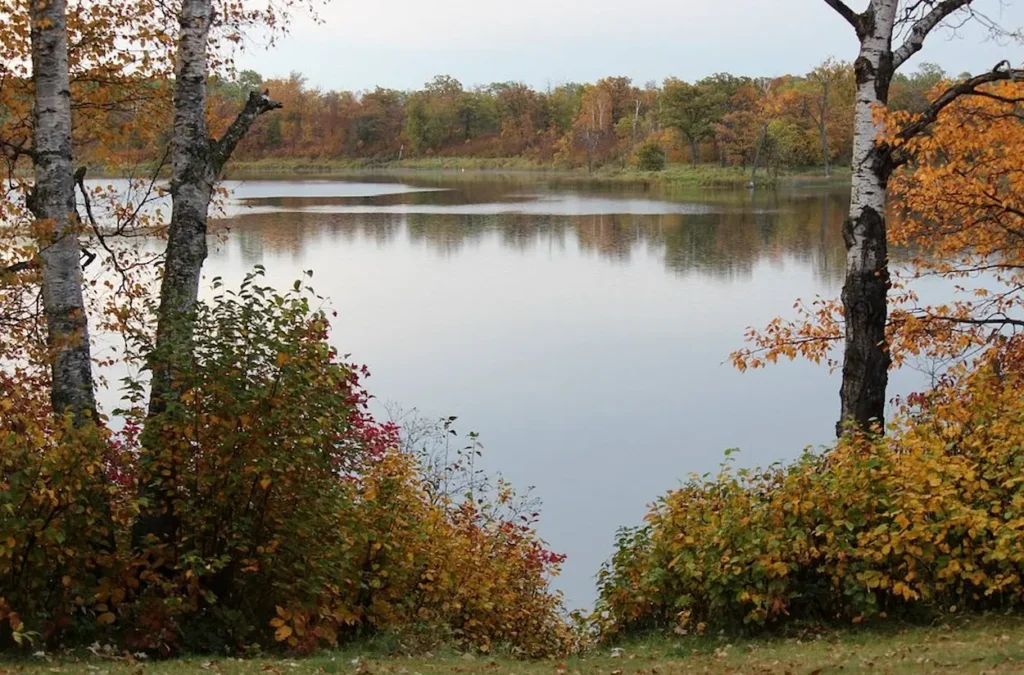
The park sits in the Turtle Mountains near the Canadian border, creating this unexpected woodland oasis. Lake Metigoshe itself has irregular shorelines with secluded bays perfect for kayaking. I’ve never felt more refreshed than after a morning paddle here when the lake was still misty at sunrise.
The Old Oak Trail is particularly beautiful year-round, but winter transforms this place into a premier destination for cross-country skiing and snowshoeing. The trail system becomes a snowy wonderland that’s perfect for Nordic sports enthusiasts.
Summer brings excellent birdwatching opportunities and wildflower meadows that feel almost magical after driving through miles of prairie to get here. The park offers both camping cabins and regular campsites if you want to stay overnight.
It’s about 20 miles north of Dunseith, so you can easily combine it with the International Peace Garden. This park really shows off North Dakota’s surprising geographic diversity – it’s proof that this state has way more variety than people give it credit for.

12. Little Missouri National Grassland
Little Missouri National Grassland is huge – over 1 million acres of badlands wilderness surrounding Theodore Roosevelt National Park. This is where you go when the national park feels too crowded (which rarely happens, but still).
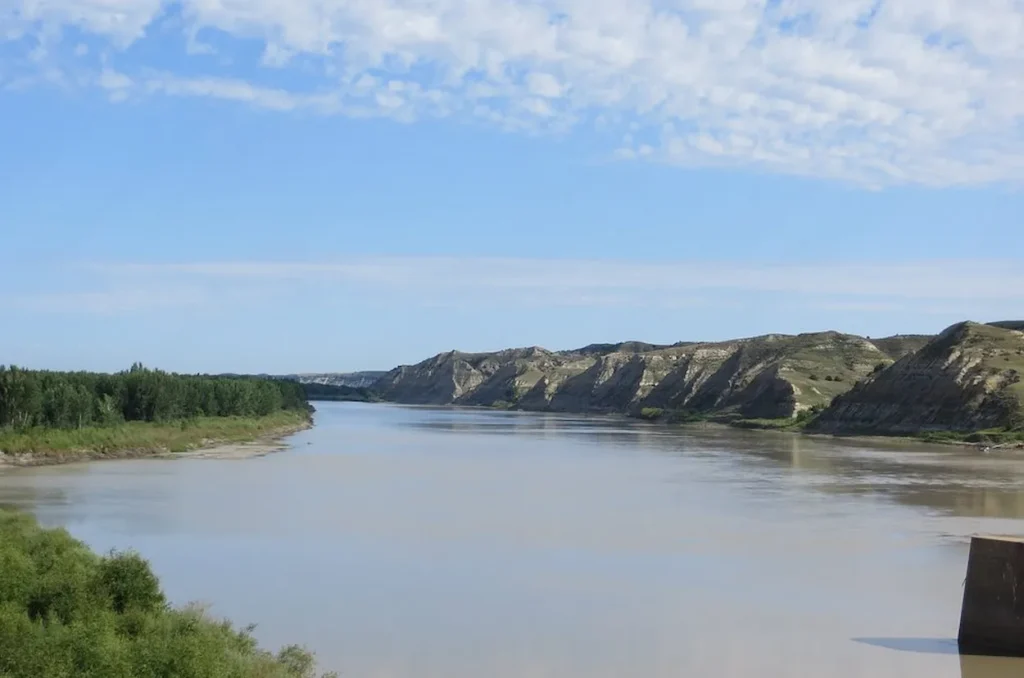
The Maah Daah Hey Trail runs right through here, giving you access to some of the most remote and beautiful terrain in the state. I’ve hiked sections where I didn’t see another person all day, just endless badlands formations and the occasional bison herd.
What makes this place special is how wild it feels. This is working grassland managed for both wildlife and livestock grazing, so you’ll see everything from prairie dogs to golden eagles to those iconic North Dakota longhorn cattle. The Buffalo Gap Campground area maintains that connection to ranching heritage.
Burning Coal Vein is worth seeking out – underground coal seams baked the surrounding clay into these incredible red rock formations that look almost Martian. Wildlife photography opportunities here are incredible if you’re patient.
Late spring and early fall are the best times to visit when temperatures are moderate and the wildlife is most active. This isn’t a place for casual day-trippers – come prepared for real backcountry conditions and bring plenty of water. It’s North Dakota at its most untamed and beautiful.



Global Viewpoint is a personal blog. All content is for informational and entertainment purposes only and does not constitute professional financial, medical, or legal advice.



